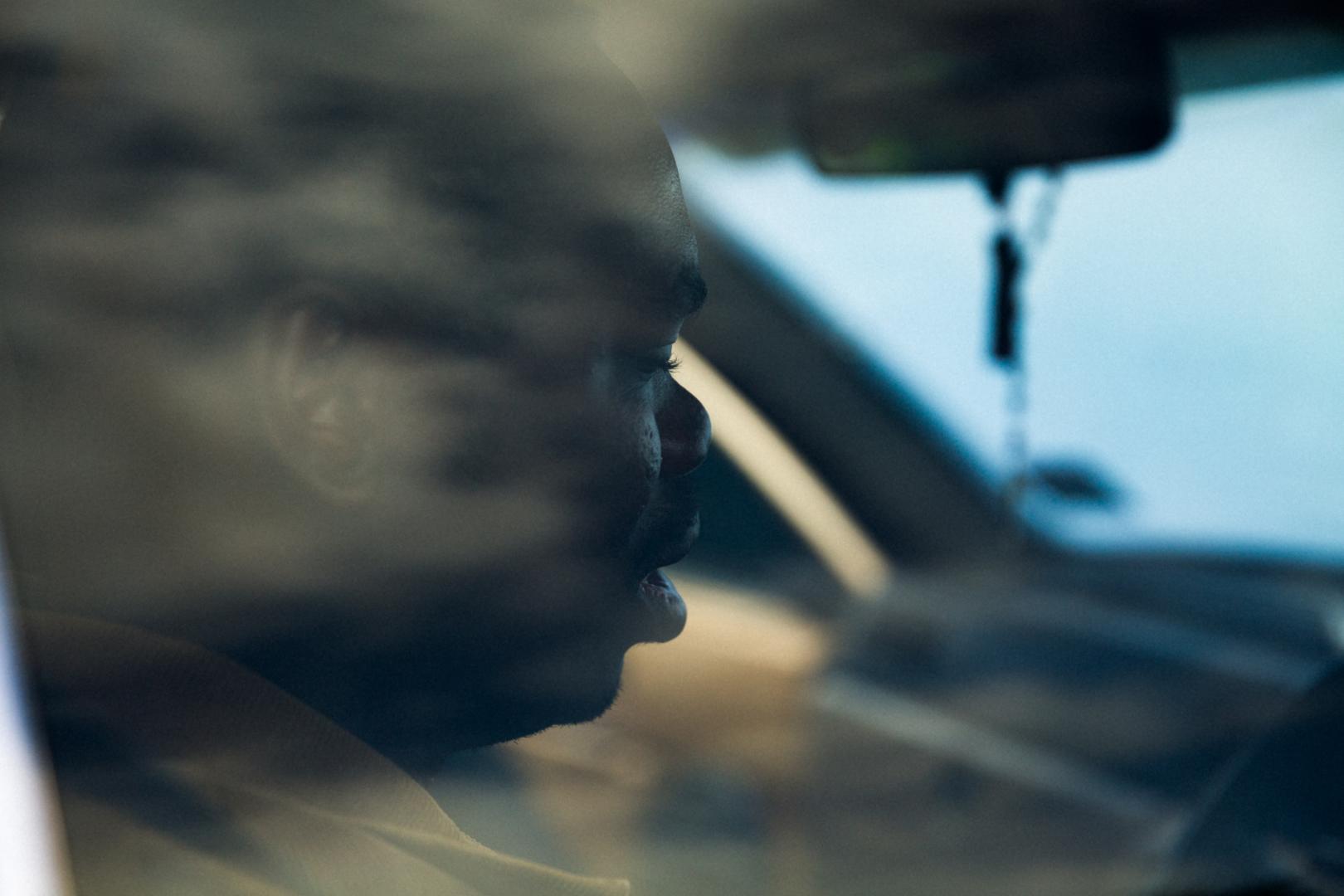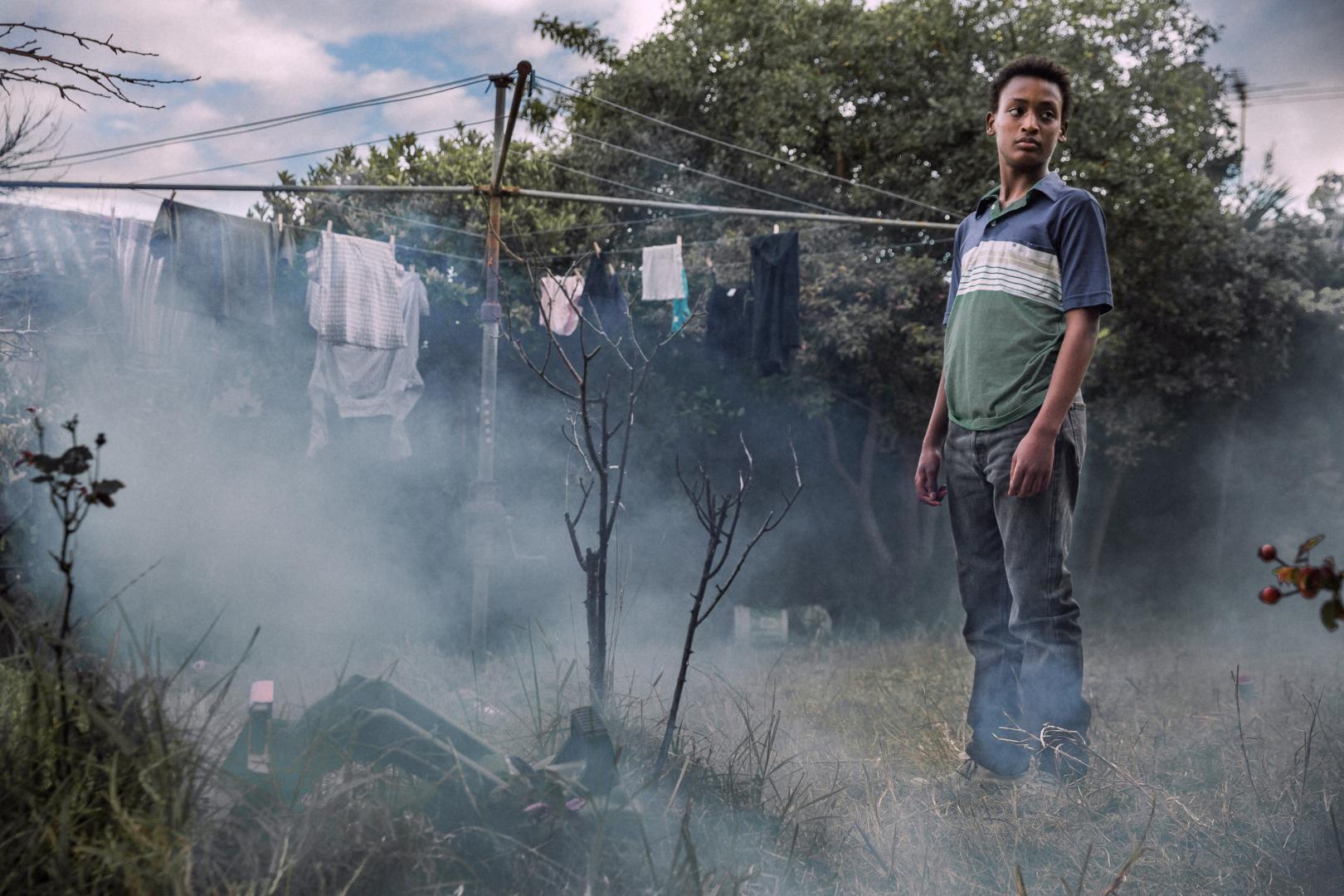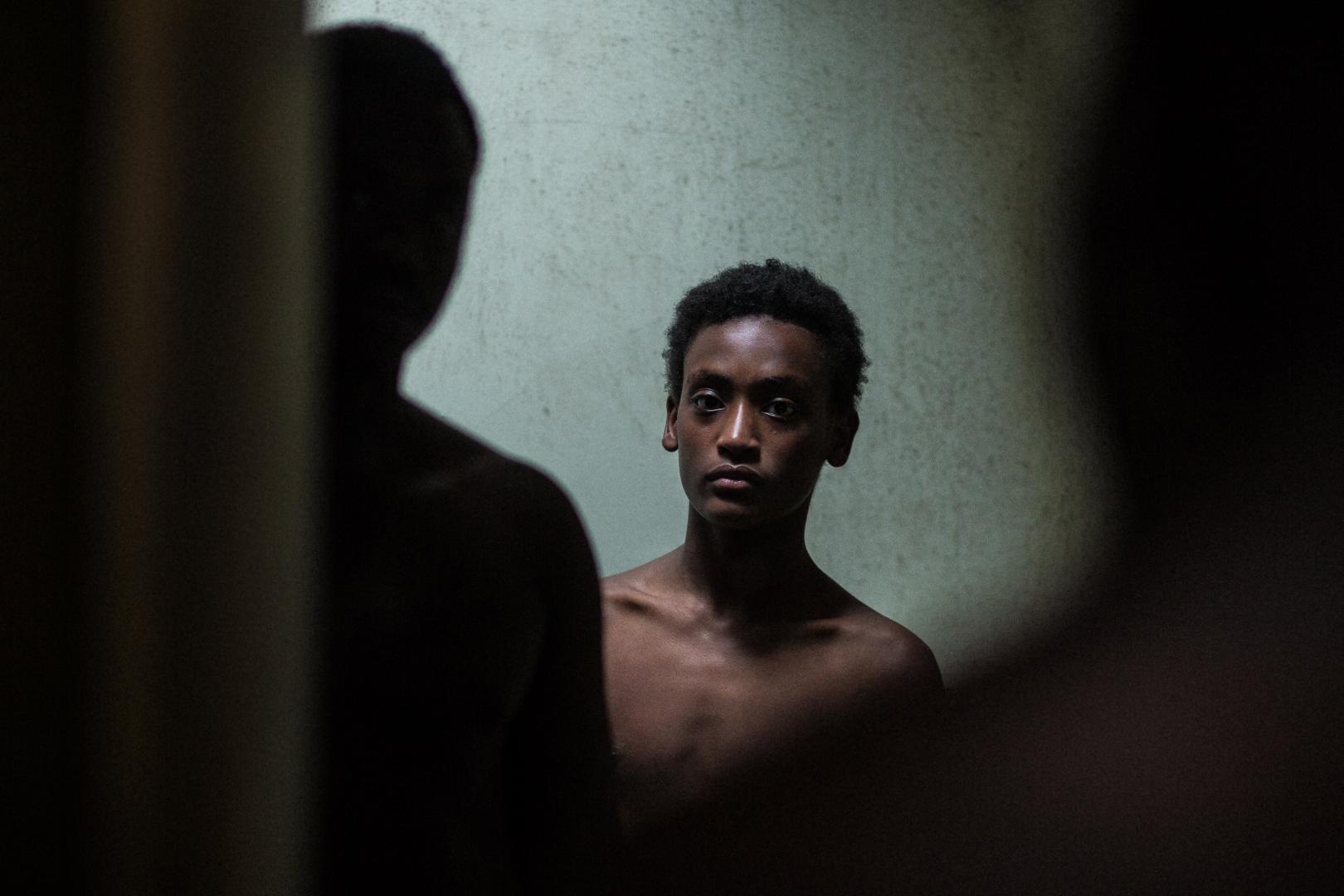Tempest took Cannes by storm in 2019. The story of the Ethiopian-Australian boy whose family has to come to terms with a tragedy moved the Jury – and us – deeply. We asked last year’s Palme d’Or winner, Charles Williams about this beautiful film, his work as a director, and his home country, Australia.
Your film is moving on many levels: it gets deep into childhood memories, family tragedies, and the dark side of nature. It's personal and universal at the same time, and it's strongly therapeutic. Is this what filmmaking is for you? A way to heal the wounds?
Thank you, that's a great compliment. With this film I just wanted to dig deepest into my own obsessions; I think inevitably when you do that you end up in your own wounds. But it might be more about picking the scabs than healing them.
Having said that, there's a lot of films that have been therapeutic for me as a viewer. I think they just articulated something in a way that was visceral and deeply felt. It just makes you feel less alone with whatever you're struggling with.
It's an incredible experience when that happens, your self awareness disappears, you have these mirror neurons firing and you feel like you're exorcising something through these sounds and images. When this happens you leave the cinema feeling like a knot has been untied in your stomach.
The 16mm format creates a shift between dream and reality. Can you tell us about your visual concept? Do you always shoot on film?
I have shot on film quite a bit over the years, but it's not dogmatic. It's always a trade off. It just seemed right for this film. Both because the organic imperfections of the medium felt like it would help visualise the themes of the film, and also because it would dictate a more considered stylistic approach.
When working with children and non-professionals, the natural choice is digital, just because of the ease and number of takes. But I thought going the other way, kind of painting ourselves into a corner by shooting film, would result in something special.. if we could pull it off.

Dandenong isn’t a part of Australia most foreign viewers know about. Why was this an important location for you?
Dandenong is one of the few areas left in Melbourne that isn't overly gentrified. It's a great area with an enormous amount of diversity; there's around 180 different languages are spoken there. It just seemed like the place for this film. Also we had great support from the council and community so it all fit really well.
Is the general public in Australia accepting towards immigrants and refugees? Do they get represented in films? How about indigenous people? Do their problems get less attention now with the refugee crisis and migration worldwide?
It's very complicated, each group has their own struggles with acceptance and representation, and I don't feel particularly qualified to shed light on it. I'm not sure their problems get less attention now than before, though there is at the very least an apathy, if not pointed antipathy, from the general public toward the plight of each of these groups.
For refugees, modern Australia has an appalling record. The issue has been sort of weaponised politically as a way for conservative governments to make Australians afraid enough to vote them back into power. And slowly the political debate has devolved into a contest of cruelty as a litmus test for leadership.
For the Indigenous Australians it's still quite insane. They're still not even recognised in the constitution and every year we celebrate our national celebrations on the day the British invaded their land. However their representation in films is quite good and Screen Australia has an excellent system for vetting those depictions.
For immigrants, there's generally a less hostile attitude (depending on their origin). We're an immigrant country, so although there are some very racist sentiments, they tend to come from a smaller, crazier pocket of Australian society than what is mainstream.
I think the film and artistic community are very sincere in their want to represent and support the stories of these groups, though I'm sure that's of little comfort to these groups given their general treatment in the society.
How are these people and other underprivileged groups of portrayed in Australian films?
Well like I say there's a want from the culture to make up for the society. This unfortunately often results in a kind of didactic storytelling and a bit of a one-dimensionality to these stories, or at least when they're told by more privileged people. When people have a chance to tell their own stories, there's more humour and grey area.
These issues were not really what I was addressing in my film, except to address them by not calling lecturing about them and not putting the racial identity of the characters in quotation marks. I wanted to be able to cast more openly, look for the right soul to play a character and not just the external characteristics.
That's not to be naive, I knew when I cast Yared, who has Ethiopian Australian heritage, that I would need to alter the story of the family somewhat and incorporate that. I took on four different advisors from that community so the film could be accurate and sensitive, however I didn't want race to be the primary issue, and thankfully neither did they. Frankly the African Australians I know get a bit tired of that being their only identity on film.

How can the problems of the oppressed be represented in films – when films are typically made by people from a more privileged background, and who are thus usually outsiders?
I think this is really interesting, the honest answer is I don't know. Sometimes when you see a gritty 'poverty' film get lauded in certain circles you have to wonder if it's is just a way to absolve the very privileged of their guilt, rather than actually changing anything.
I see a lot of short films about the destitute lately, made by very privileged young filmmakers, simply because they think it's exotic! It's funny because I come from a very poor upbringing and I always wanted to make films about people from really rich backgrounds (those kind of Max Ophuls, Jean Renoir worlds)! Sometimes it's a case of not appreciating your own stories; or being ashamed to tell them.
Though I don't think people have to make films only about their own direct experience. Very few of the Italian neo-realists actually came from the backgrounds they were depicting. And it's a medium built on imagination and empathy. You just get a bit wary after seeing so many films where people clearly don't intimately understand the world's they're depicting.
This film is the first time I've represented something closer to what I grew up with, though I didn't want it to feel grim, quite the opposite.
The casting procedure was extraordinary. Why was it so hard to find the right Tempest, and how did you know that Yared was the one? How did you find the others?
The role had to be someone entering adolescence, and there's a lot of emotional complexity that had to be communicated with almost no dialogue. And you needed a rawness. This alone is very hard to find in anyone, let alone someone so young.
I felt I could rewrite the story around the right soul, whatever their race or gender was. My casting agent, Fiona Dann, and I just went out with a very wide net. We looked at actors and kids from schools and the local areas. I even went to special schools that are for kids who can't function in normal schools, usually because of trauma. This alone was really rewarding and a number of the kids ended up coming on set as trainees. In the end Yared, who has a wonderful and supportive family, just had the right qualities, it was all there.
Having said that I had to find another boy for the voice over as Yared's voice didn't quite fit.
I found the kids that play his friends in the film as they were getting into a fight in the street. I ran over and asked them to be in my film!
Mandela Matthia, who plays the father, was in his last year of training at NIDA (Australia’s premiere dramatic school) when I cast him. His role required a lot more range and emotional agility, and that was a more traditional process. He was a gift.
Did you let them improvise?
Somewhat yeah. But only really in the backyard scene when they're playing. I had a few games I knew we could play and we sort of just ran with those, you want those scenes to feel as alive and spontaneous as possible.
Most of the improvisation happened in 'scenes' that we didn't usually film. We would improvise before the scripted scenes and play these out before we rolled camera. It worked as a way of getting everybody into character, especially in the scenes of the first half of the film where everything is quite fragmented.
Tempest – is this a reference to Shakespeare?
Not really. I knew someone with this name and I liked the reference of something elemental and tempestuous taking place inside him.
Did you have difficulties with shooting with the dog or the frogs?
So much! Poor Mandela couldn't get through an emotional breakdown without the dog jumping up and licking his face. It was all very challenging. We had no real budget either and combining dogs and insects and untrained actors and children and car scenes and road closures; shooting on film... kind of a crazy mix. I was lucky to have a patient crew.
Do you get many personal stories as a response to your film? Have people started sharing their own childhood memories with you?
Yes there's been some, which is very moving. Most people don't open up so literally, but there is a depth to the connection that they have had to the film which I feel very lucky for.
You have been making shorts for a long time. How did the Palme d'Or change your life?
It's given me some much needed legitimacy. It's been quite a struggle, mostly because of the things you're talking about. There's a reason most filmmakers come from money or a lot of support, without those things I've floundered a bit. Each time I made a film I've felt so restricted and it has taken me a long time to recover financially. Winning the Palme d'Or and having the film be so appreciated has given me a lot of encouragement and, like I say, legitimacy, which is really important when trying to make features.

How does it make you feel that the general public doesn’t know much (or anything) about the short film sections in Cannes and other big festivals?
I don't really think about it to be honest, they know enough. In Australia Cannes is a very big deal, and even though the average Australian isn't seeing the shorts, they know it's a very high honour to be part of the festival. It's more than enough for me that those who have seen the film have responded so generously.
You have made several successful short films, and now you are working on feature projects. What is the difference between the two formats?
Yes I'm working on a few features, mostly on one in particular called Inside. It's very similar thematically and stylistically to All These Creatures, however it takes place in a more criminal environment, which seems appropriate to me as an extension. If I literally adapted the short it would be a kind of coming of age story and that's not something I'd really want to make as a feature.
For me features and shorts have more in common than not. You can, or at least you should, probably take more risks with a short. The challenge though is that, due to the short production process, there's no real time for anyone to really do their best work. By the time the cast starts to click, the shoot is over. So I'm looking forward to that longer process where everyone can get further into the world for longer.
Do you think you will return to making shorts after your features?
It's possible given the length of time it takes to get a feature made.. I don't want to live too much of my life away from a camera.
(Photo credits: Matthew Lynn)